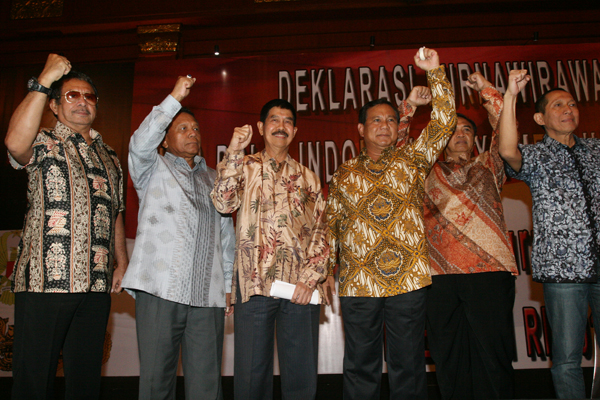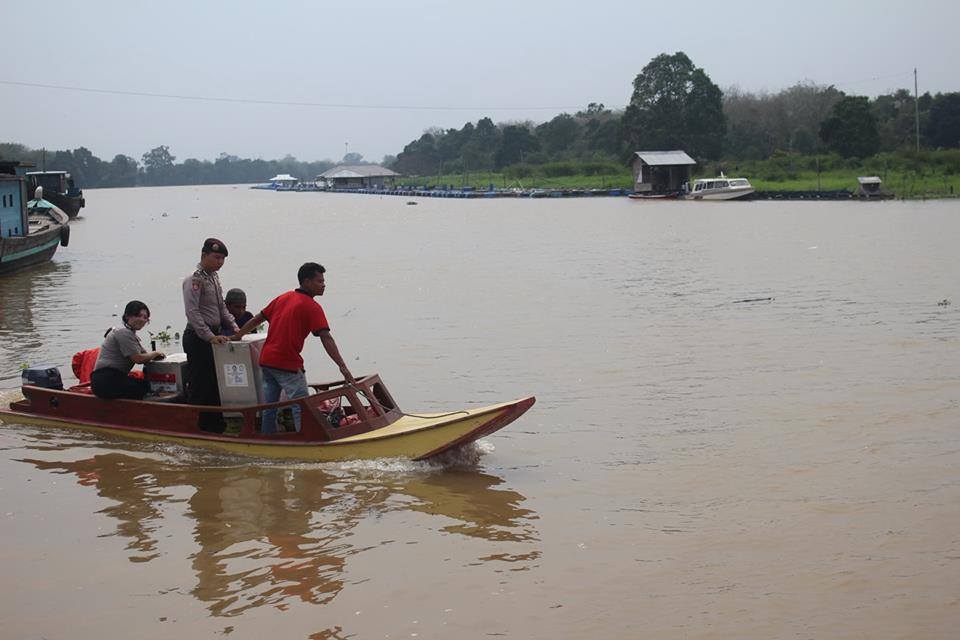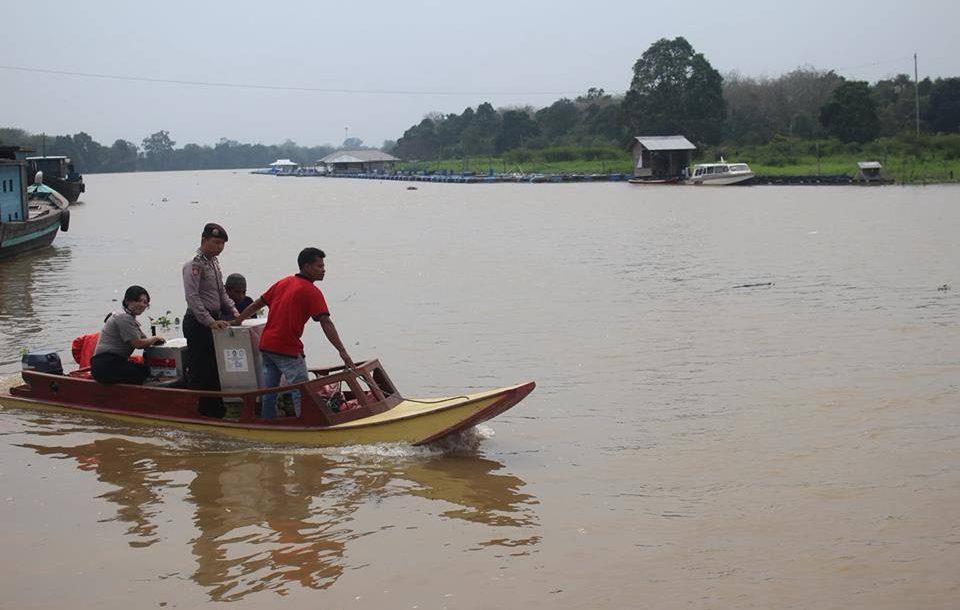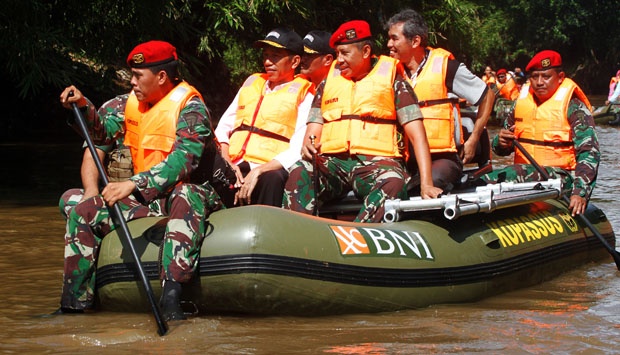Will the military and police community – broadly defined, support Jokowi or Prabowo in the coming presidential election?
Military and police commanders have repeatedly proclaimed their personal and institutional neutrality in the general and presidential elections. That pledge appears to have been largely upheld in the 2014 elections. Violations appears to be minor and those by lower level officers have been dealt with in some instances.
Neither serving military (425,000 personnel) nor police officers (400,000) are permitted to vote and a judicial review last week confirmed the ban on TNI/POLRI voting. Nevertheless, they can to varying degrees influence the voting patterns of their families and associates. Despite the absence of data it can be assumed that their political leanings are just as fragmented as they are in the general community.
Because of this diversity the ex-service association (Pepabri), ex-service wives and widows association (Perip), and the veteran’s organization (LVRI) do not endorse particular parties or presidential candidates. Pepabri is headed by Lieutenant General (Retired) Agum Gumelar a former cabinet minister and member of the Military Honour Council that recommended Prabowo’s dismissal from the TNI. Perip is headed by Mrs Ratna Joko Suyanto, wife of the Coordinating Minister for Politics, Law and Security, and LVRI is headed by Lieutenant General (Retired) Rais Abin a renowned Middle East peacekeeper. Rais was never close to Suharto but was kept on in supporting roles such as ambassador to Malaysia and Singapore.
Individual officers, organised informally, have come forward to support each presidential candidate. Last night Jokowi and JK paid a visit to a gathering of 20 retired police and military generals. A week ago, hundred of retired officers lent their support to Prabowo.

Last week, at the Jagorawi Golf and Club House in Bogor, 200 retired police and military generals pledged their support to Prabowo. Photo credit: foto.inilah.com
Some retired military and police officers and their family and associates would have participated in various capacities in all 12 parties that ran in the recent general elections. That said the nationalist parties have attracted the largest concentration of military personnel. Prominent examples are Generals Wiranto with Hanura, Sutiyoso with PKPI, Prabowo with Gerindra, Hendropriyono associated with PDI-P, SBY with the Democrats, Luhut until recently with Golkar (he resigned when Golkar joined with Prabowo). Islamic parties have seen a small showing with Yunus Yosfiah in PPP, and former Deputy Chief of Police General Adang Daradjatun with PKS. Taken together, retirees and their families and associates and the families and associates of active military officers could number several million but probably represent no more than 3-4 per cent of the likely voters.
The presidential election narrows the choice to Jokowi, a civilian with no military experience but valuable experience as a sub-national politician, and Prabowo, a retired general with no experience in civil government. Even during the New Order Prabowo did not serve in territorial commands where he would have gained experience in sub-national politics. He’s chalked up some of that experience by heading up a national farmers’ lobby group (HKTI).
Any presumption that military and police votes would naturally gravitate to Prabowo is questionable. There has been a strong anybody-but-Prabowo movement among former military officers who opposed him in 1998.
A group of seven retired generals led by retired General Luhut Panjaitan called on the President in March last year when there were signs that he might be leaning towards Prabowo. Even the special-forces fraternity is split with former special-forces officers like Agum Gumelar, Hendropriyono, Luhut, Sutiyoso, Muchdi PR, Soebagyo HS, Sintong Panjaitan and others in the Jokowi camp.

Polri and TNI are charged with safeguarding the integrity of the elections. But are they politically neutral? Photo credit: Humas Polri.
It is also unlikely that either retired naval or air force officers have any particular affinity with Prabowo. In addition, serving senior police have no desire to see a former military special-forces commander who might favour a bigger role for the military in internal security become president. How much influence tribal loyalties and a predisposition to see civilians as weak and self-absorbed will influence the military and police community vote remains to be seen but it will not be an overwhelming factor.
Indonesia has been reasonably peaceful since making peace in Aceh in 2005 but sporadic outbursts of mass violence and violent crime keep the issue of security alive and any act of terror during the campaign might well favour Prabowo, especially if it is not effectively managed. However, it could become a home goal if there is any suspicion that violence has been instigated to benefit either side.
The choice President Susilo Bambang Yudhoyono makes in aligning his party for the elections could be decisive. His prime interest is to protect himself and his family from prosecutions that might arise from his time in office. His personal preference is for the Prabowo-Hatta Rajasa ticket because Prabowo would have no interest in raking over the coals of the past and the latter is related by marriage to his son.
But with the outcome of the election uncertain and his party split he will hesitate to align the party with either candidate. Although the organizational support of the Democrats could be decisive SBY’s personal influence within the military and police community will be diluted by his lack-lustre second term and his lame duck status. His good relations with the police might give him more sway there but it will be neutralized to some degree by their institutional interests if he aligns the Democrats with Prabowo.
The religious affiliations of the military community are also unlikely to be significant. Although Prabowo is in alliance with three of the major Islamic parties (PAN, PKS and PPP) another (PKB) is aligned with Jokowi. This is sufficient to fracture the Islamic bloc, which in any case is not monolithic, and given the nationalist orientation of the military and police community Islamic issues are unlikely to be a major determinant of their voting patterns.
The crucial thing is that the military and police uphold their legal institutional obligations and commitments to political neutrality and securing what will be a hotly contested campaign. Given that 124 million people voted in the recent general elections the votes of the fragmented military and police communities are unlikely to have a decisive impact on the outcome of the presidential election. This assessment is supported by General Sutiyoso’s recent self-interested observation that although the retired military vote seems to be split 50/50 it actually favours Jokowi; and General Agus Widjoyo – the last TNI parliamentary faction leader, dismissed the question of who the military and police communities will vote for as a ‘non-issue’.
Bob Lowry is an Adjunct Lecturer UNSW Canberra at ADFA.
 Facebook
Facebook  Twitter
Twitter  Soundcloud
Soundcloud  Youtube
Youtube  Rss
Rss 
